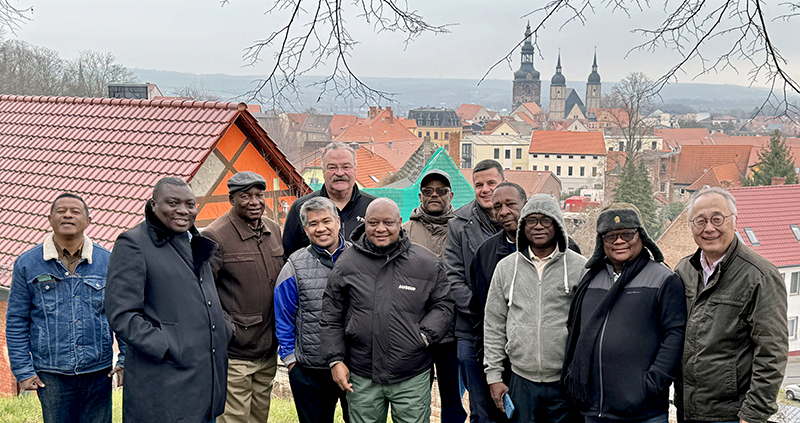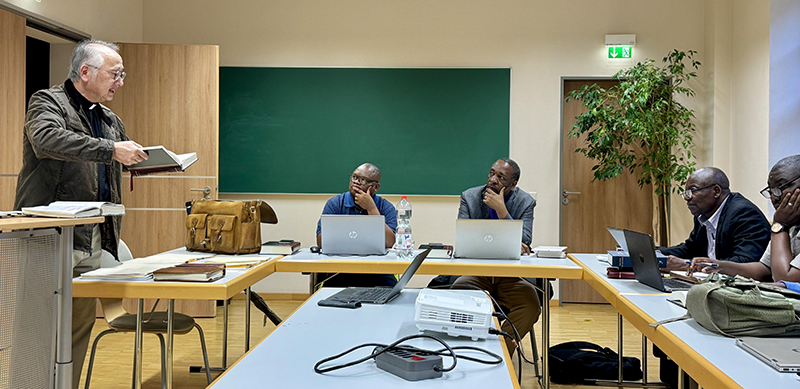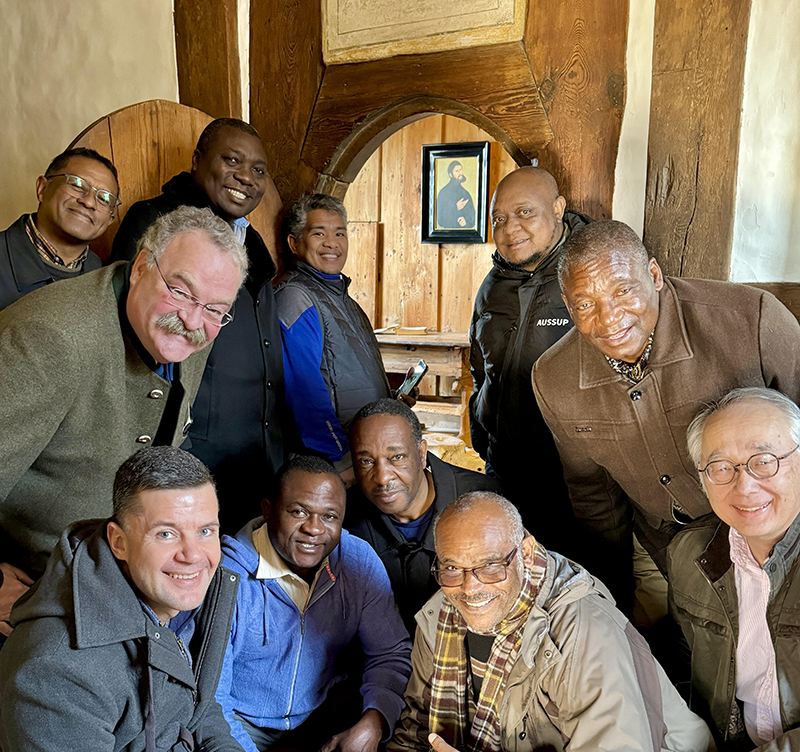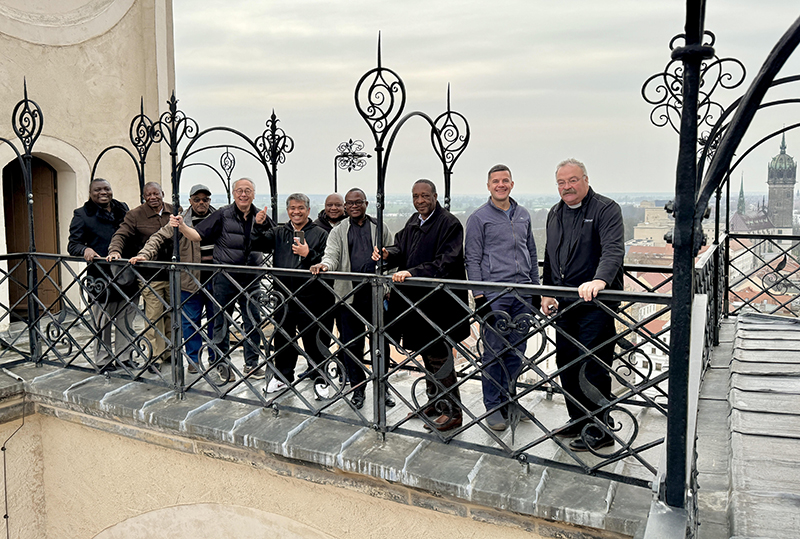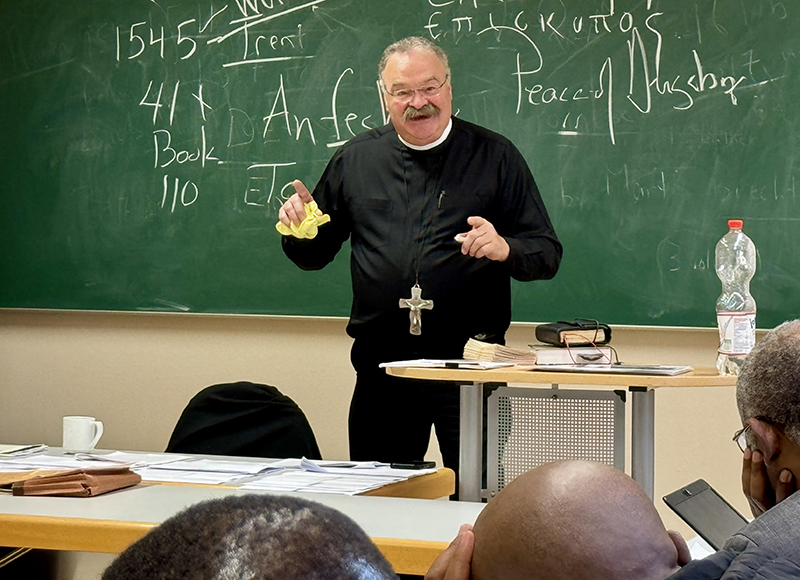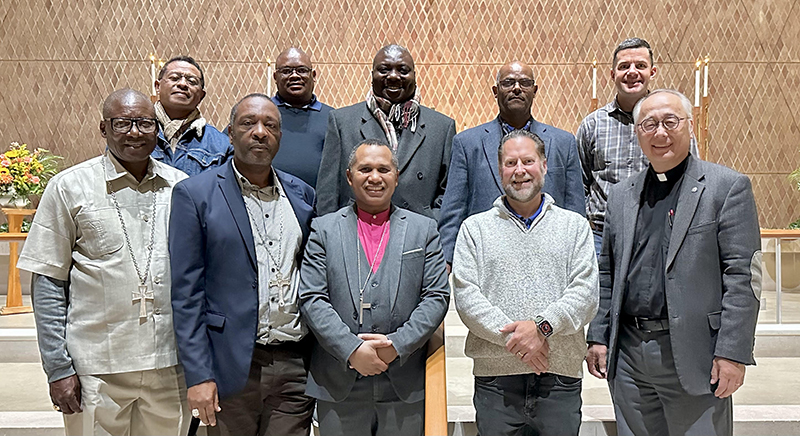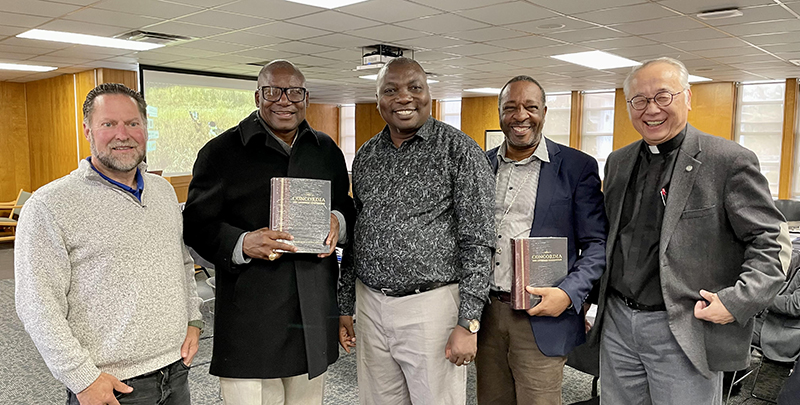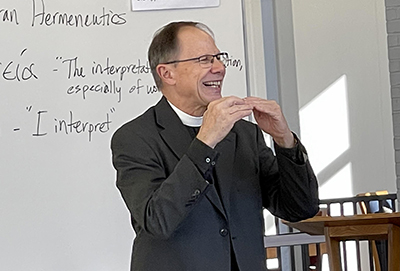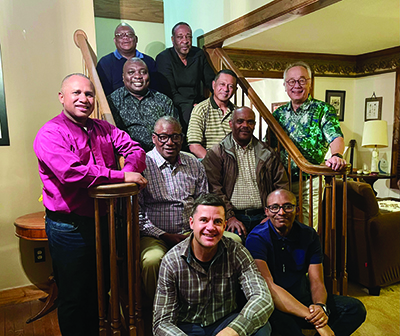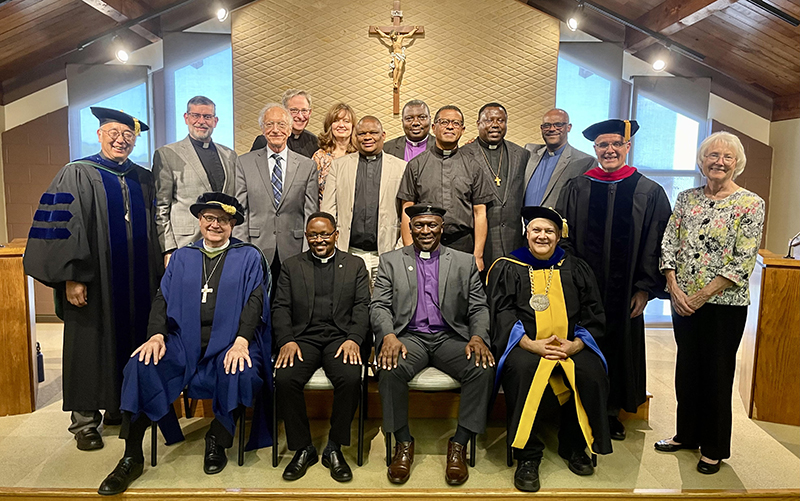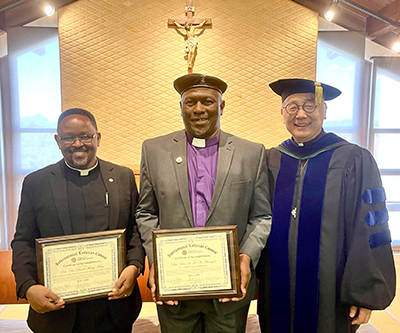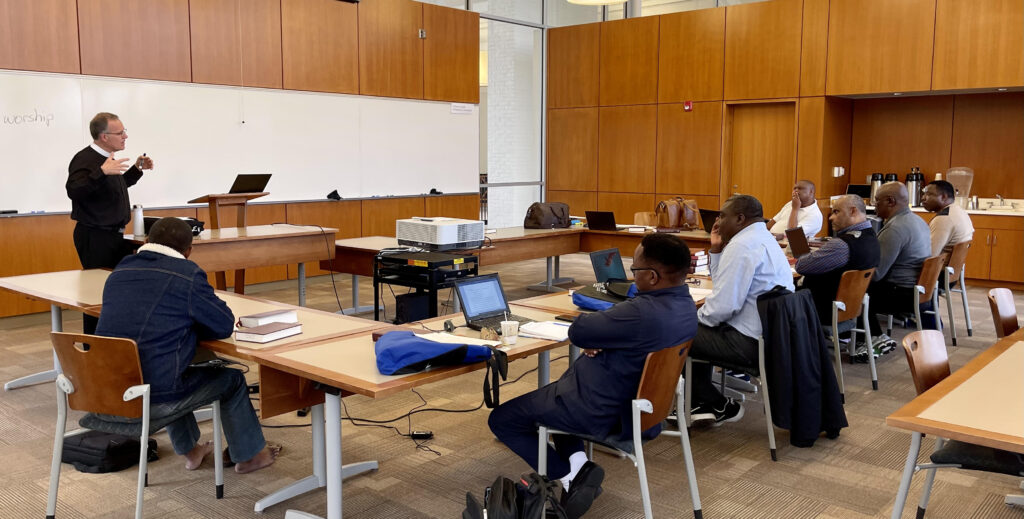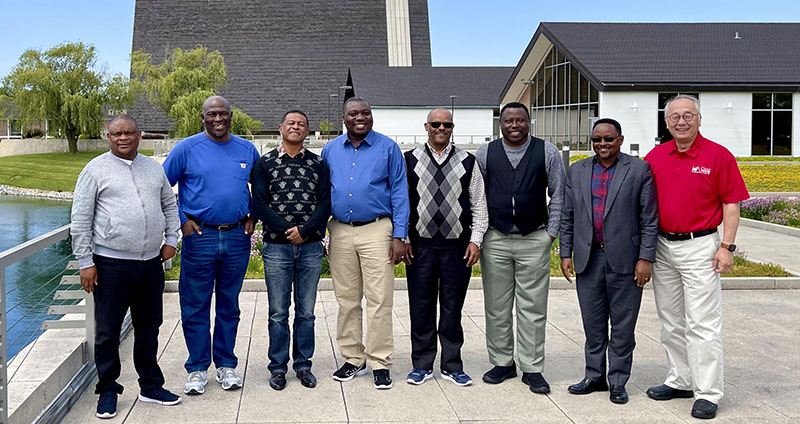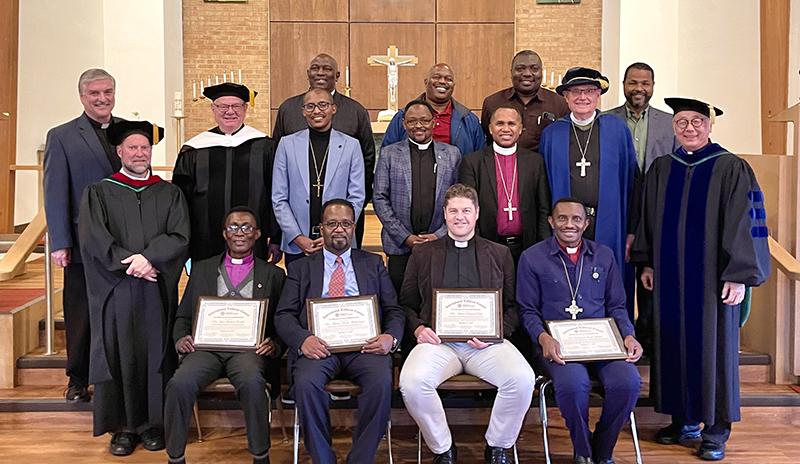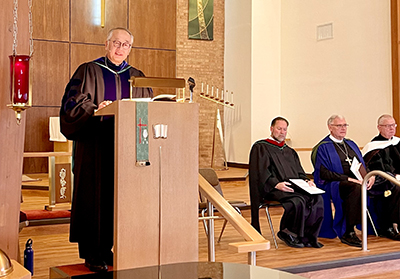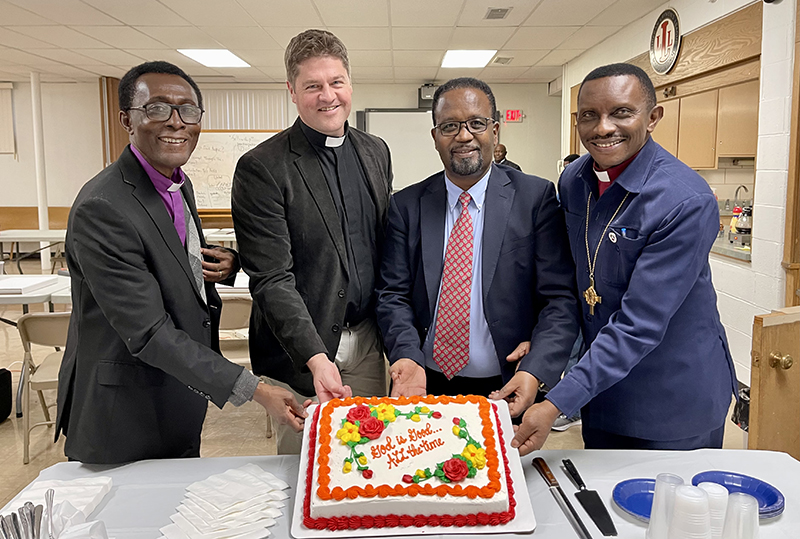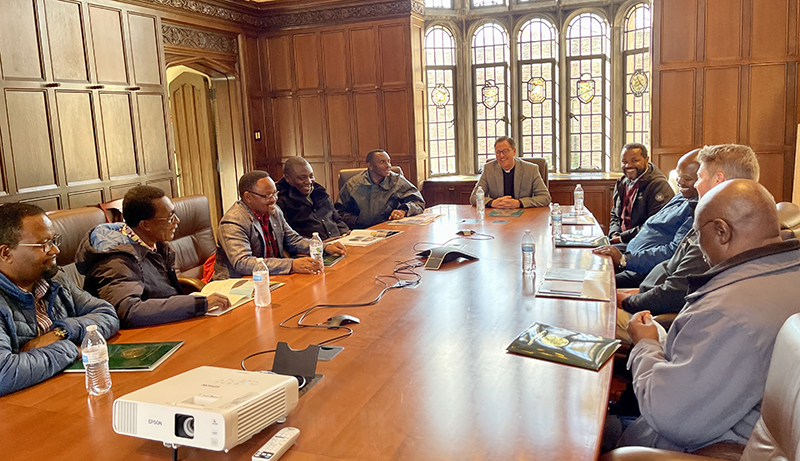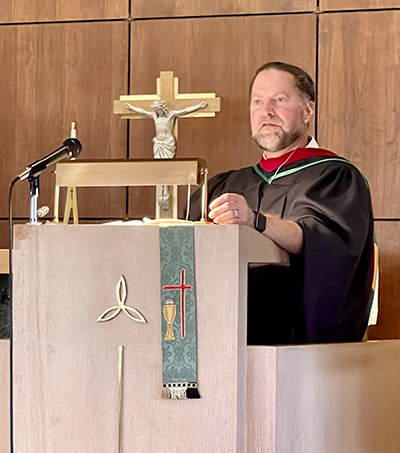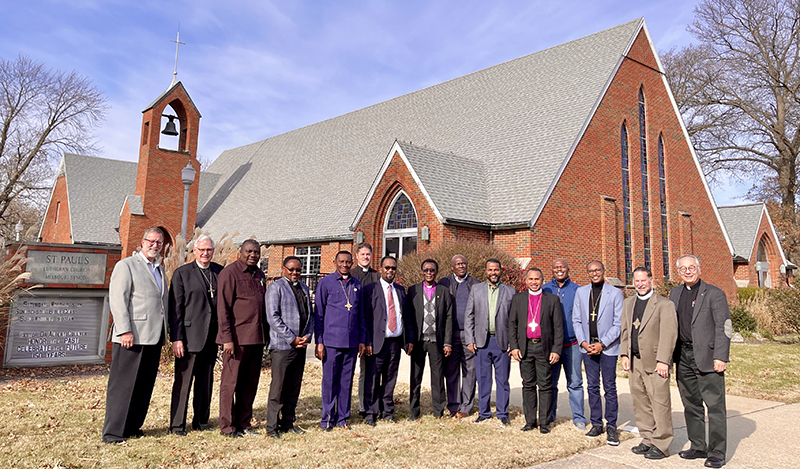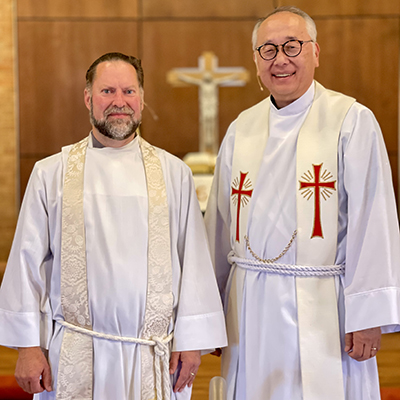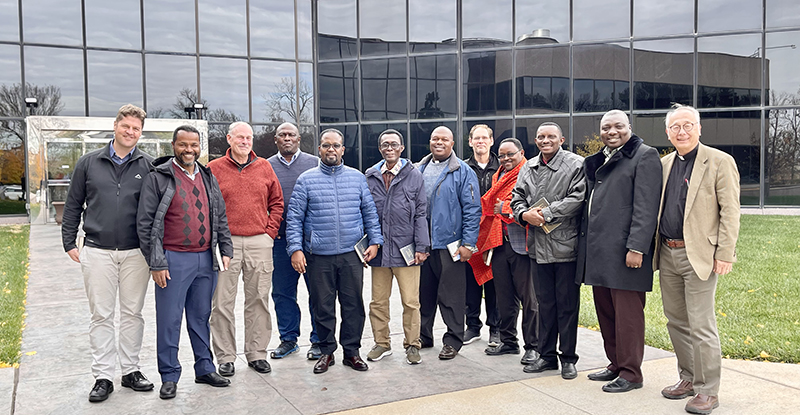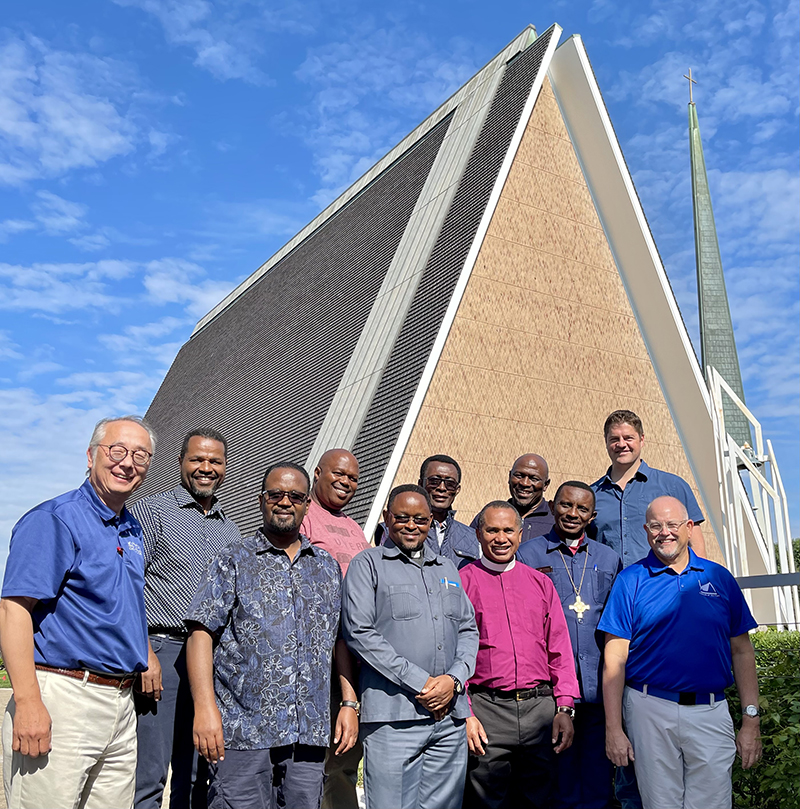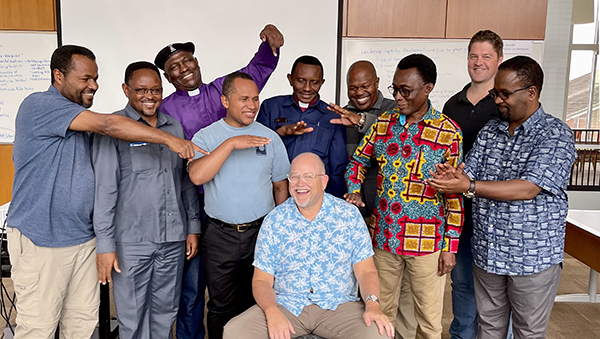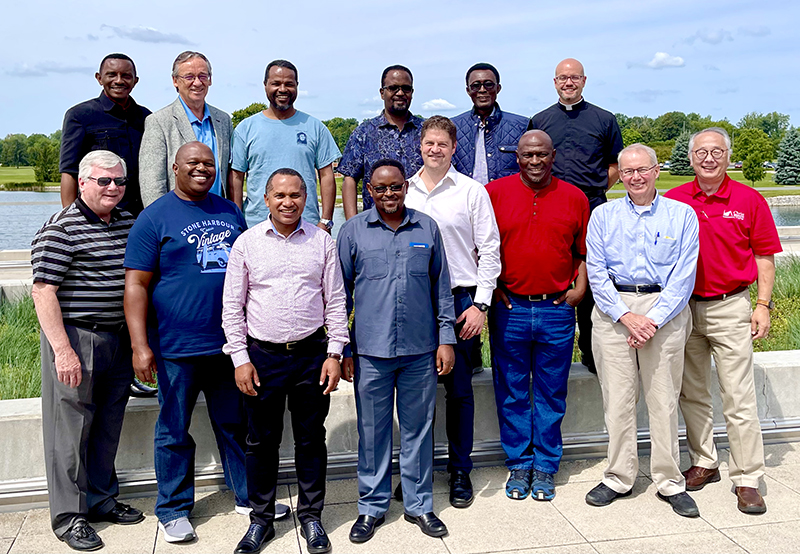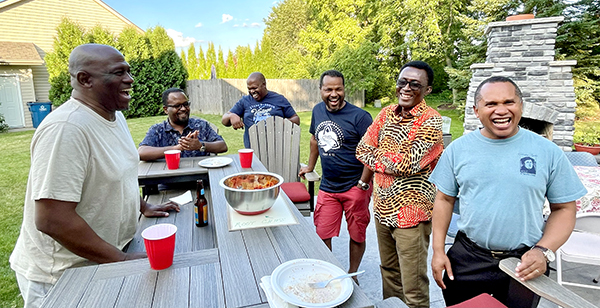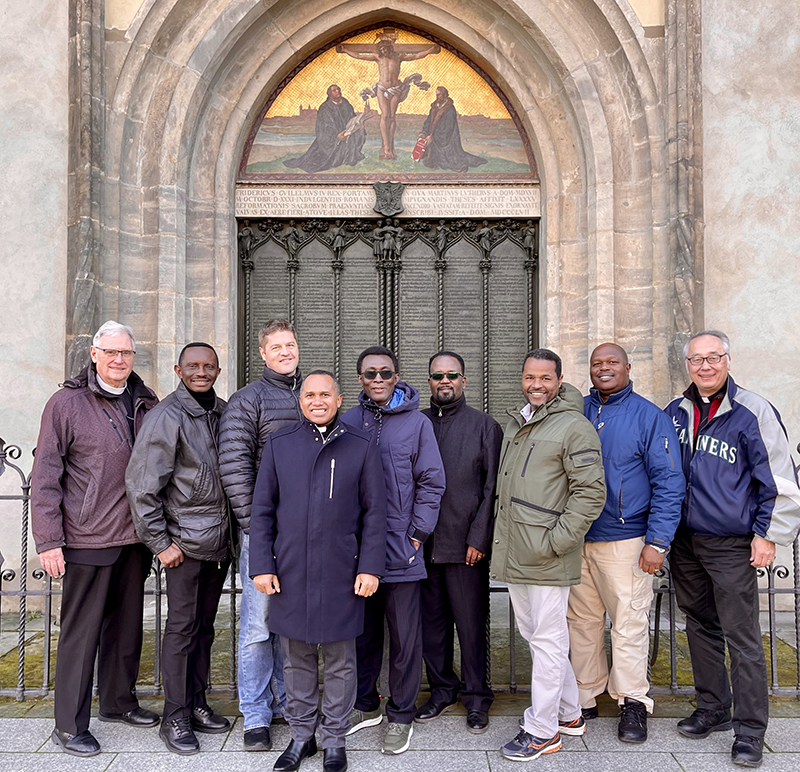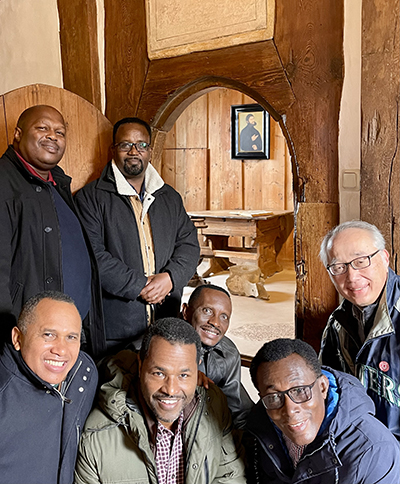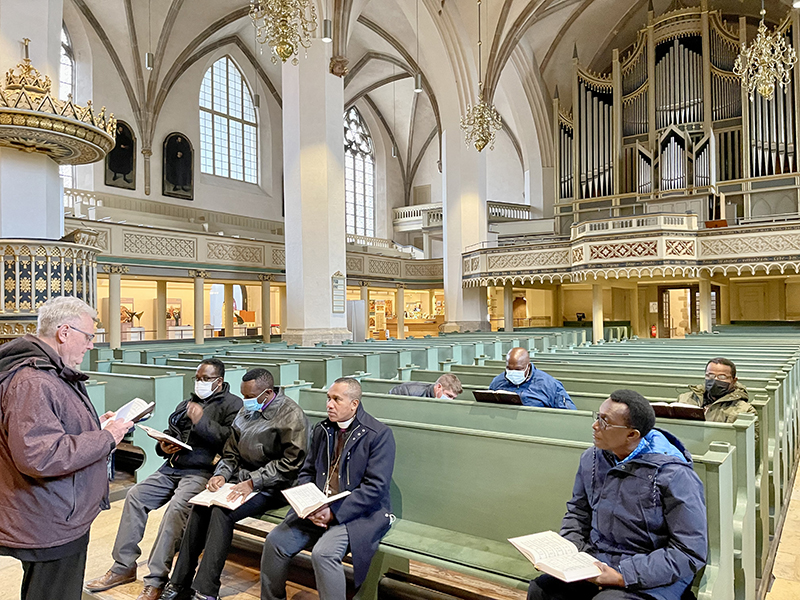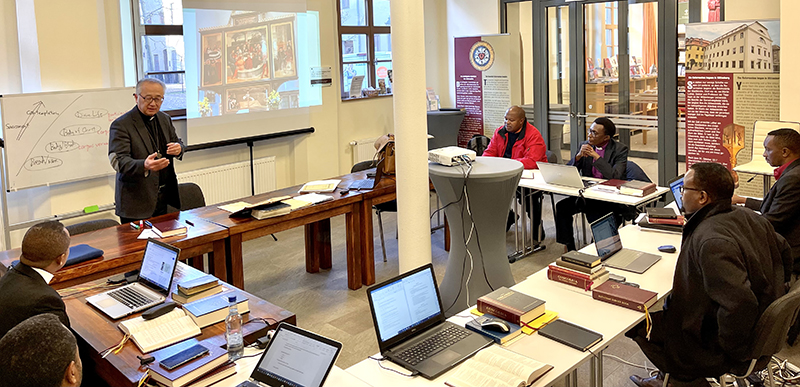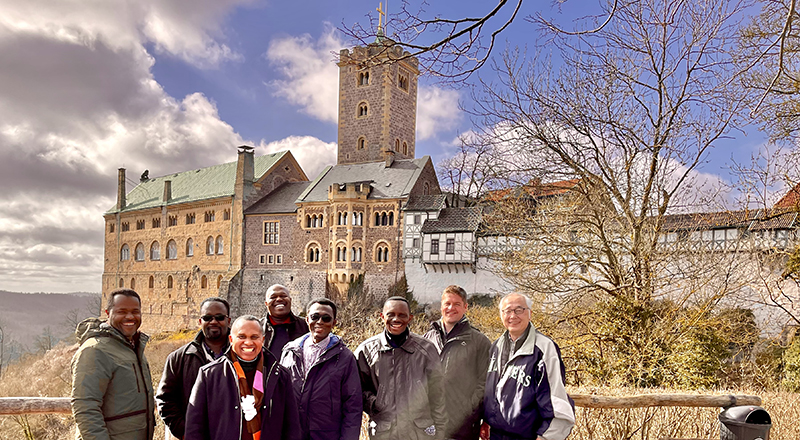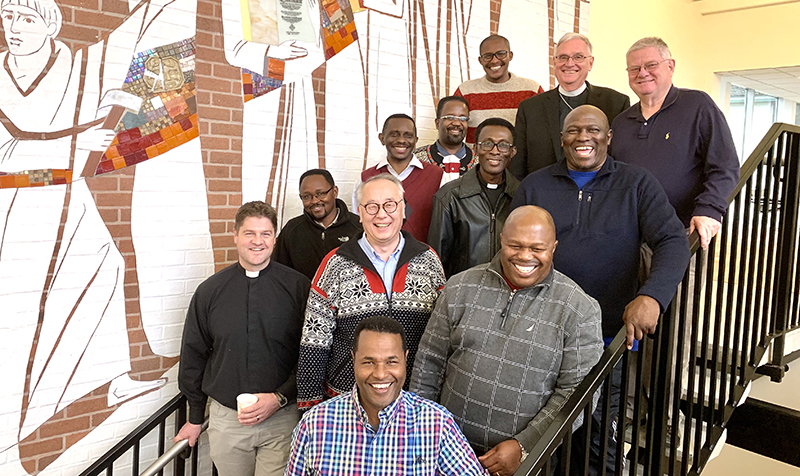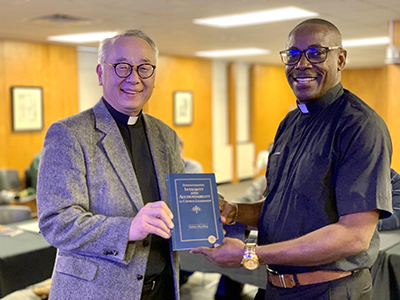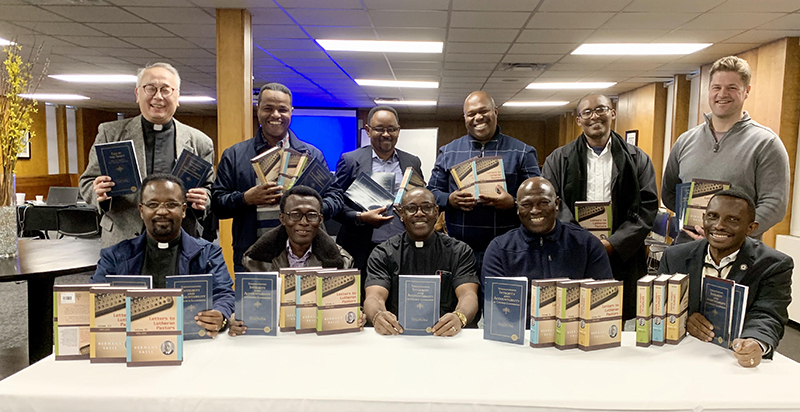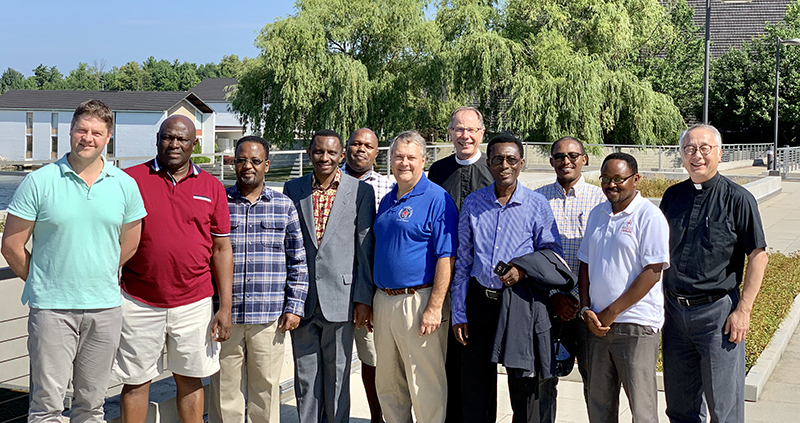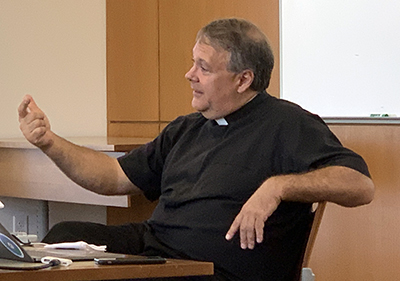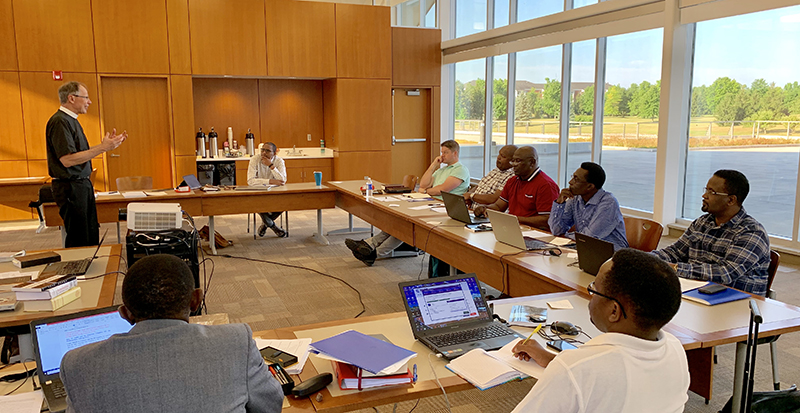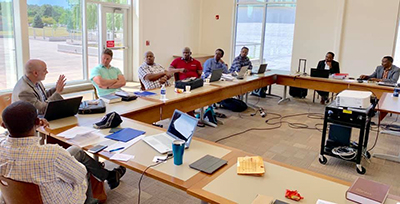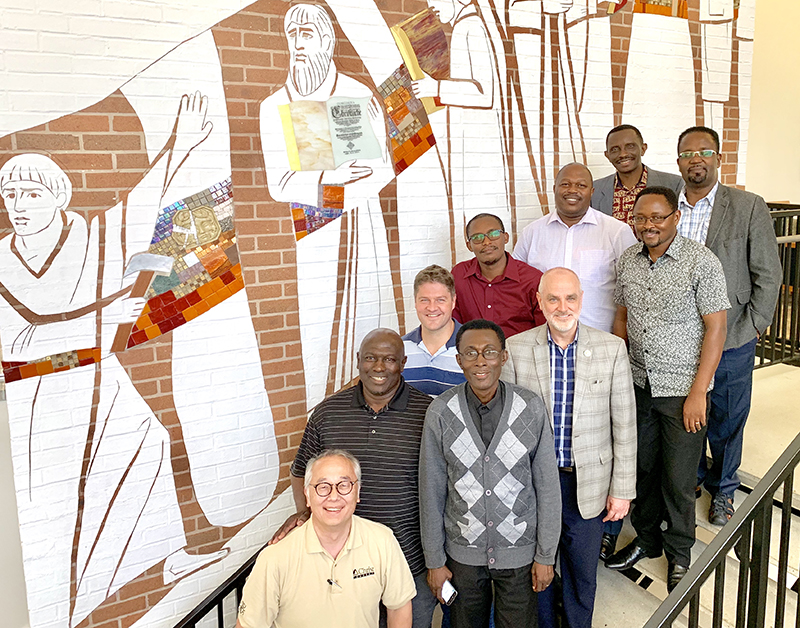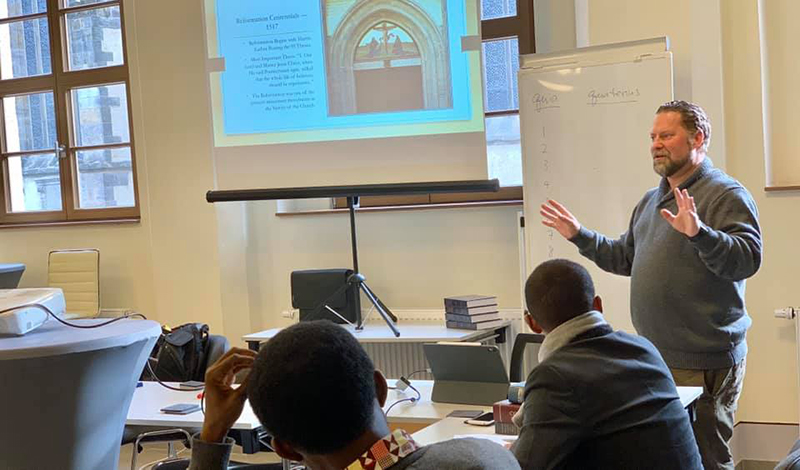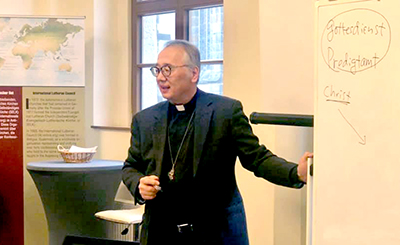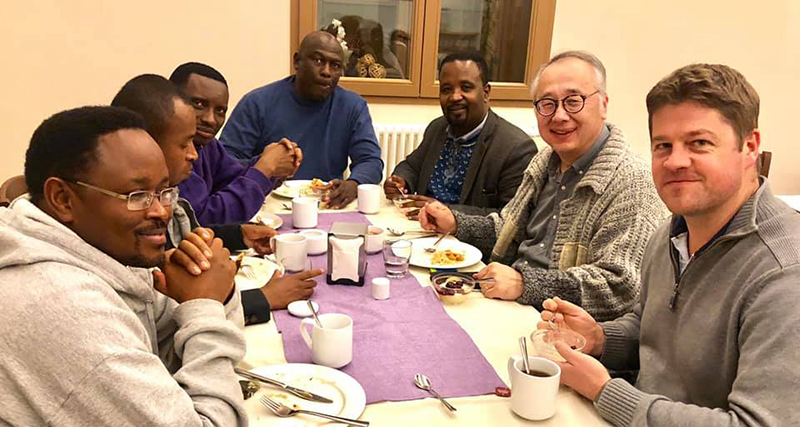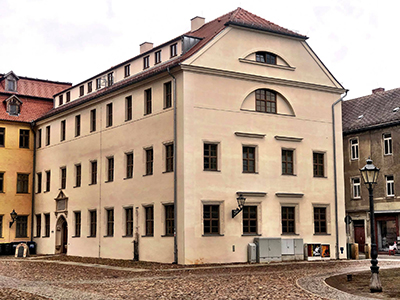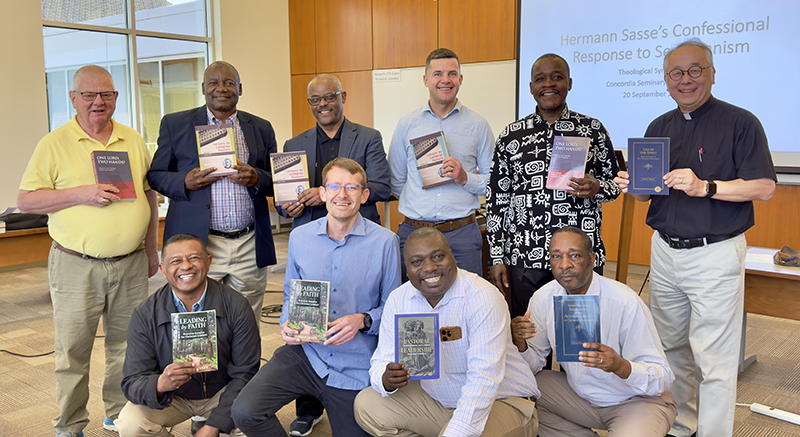
USA – Building on its “fabulous” February session held in Wittenberg, Germany, the Lutheran Leadership Development Program (LLDP) held its next regular session at Concordia Theological Seminary, Fort Wayne (CTSFW) in Indiana from June 24 to July 5, 2024.
Visa difficulties kept six students from participating, but those who were able to attend enjoyed a series of training courses of a practical nature. During the first week, veteran Professor John T. Pless of CTSFW taught “Responding to Contemporary Issues and Neo-Pentecostalism.” General Secretary Teshome Amenu of the Ethiopian Evangelical Church Mekane Yesus (EECMY), led the “Ecclesial and Organizational Leadership” class during the second week. It was a special delight to have General Secretary Amenu back with the LLDP, as he was one of the first graduates from the program in November 2022. Rev. Amenua, who is a former professor and dean at Mekane Yesus Seminary and is about to defend his PhD dissertation on ecclesial leadership, offered a very valuable service to the LLDP as an instructor.
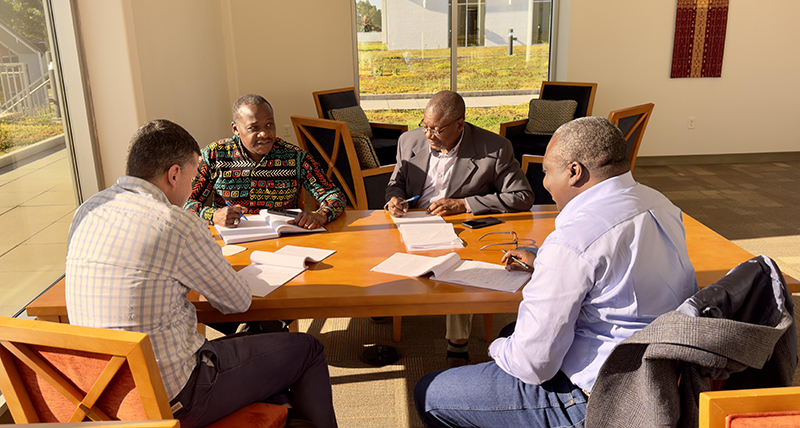
Participants in the June and July sessions come from seven Lutheran church bodies and dioceses in five countries in Africa. They are: Rev. Dr. Yohana Nzelu, Bishop of South East of Lake Victoria Diocese, Evangelical Lutheran Church in Tanzania (SELVD-ELCT); Rev. Johanesa Andriamanarinjato, Bishop of Fisakana Synod, Malagasy Lutheran Church (FLM); Rev. Dr. Yacob Godebo, Director of PhD Program at Mekane Yesus Seminary (EECMY); Rev. Martin Paul, Third Pastor in the Synodical Council, Free Evangelical Lutheran Synod in South Africa (FELSISA); Rev. Ambele Mwaipopo, Bishop of Lake Tanganyika Diocese (LTD), ELCT; Rev. Jackson Mushendwa, Bishop of Western Diocese (WD), ELCT; and Rev. Charles Bameka, the National Presiding Bishop of Lutheran Church of Uganda (LCU). Rev. Dr. Heinz Hiestermann, Director of Lutheran Theological Seminary in Tshwane, South Africa (FELSISA) also joined the sessions as a special student. The LLDP served once again, as one participant noted, “as a hub connecting confessional Lutheran leaders from around the world to strengthen, support, learn, and work together.”
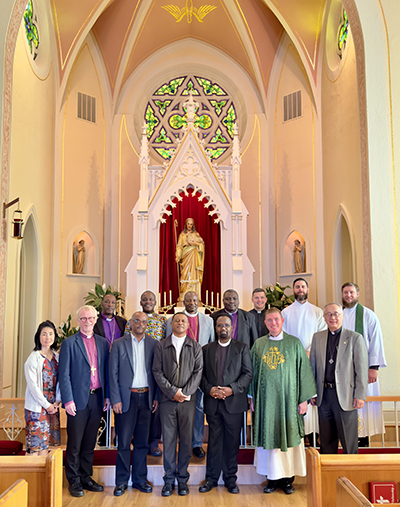
During their two week stay in Fort Wayne, participants had the opportunity to receive the Divine Service at St. John’s Evangelical Lutheran Church in Bingen/Decatur, Indiana, in addition to daily chapel at CTSFW. They also met with CTSFW’s new president, Rev. Dr. Jon Bruss, heard a special lecture on mission and ecclesial leadership by Bishop Torkild Masvie of The Lutheran Church in Norway and Iceland (LKNI), and welcomed ILC General Secretary Klaus Detlev Schulz, who also serves as a professor at CTSFW. They were even entertained by Mr. T. J. Mattick, District Vice President of Lutheran Church Extension Fund (LCEF) of Indiana District.
The session was a perfect pairing of two classes. Dr. Pless’ class lay the theological foundation for the participating church leaders to engage in a variety of contemporary issues they face. General Secretary Amenu’s class sought to equip them with practical skills to handle those situations as leaders. Participants learned to develop their theological discernment based on scriptural doctrine and historical knowledge through Prof. Pless’ guidance. Rev. Amenu’s class assisted participants in recognizing their leadership “style” and capacity, and engaged in several case studies.
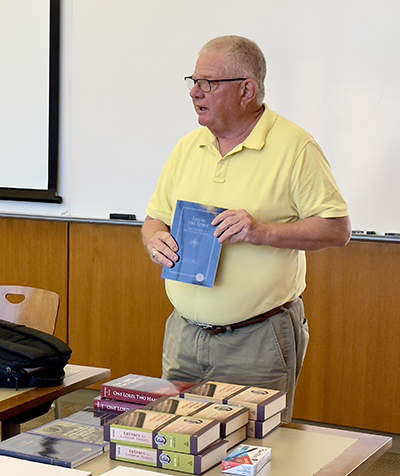
Dr. Pless’ class treated all the way from the doctrine of Scripture, the nature of the confession, and the work of the Holy Spirit to the history and theology of a variety of Pentecostal and neo-charismatic movements, sound and false ecumenism, sexuality and gender issues, two Kingdom doctrine, interfaith dialogue, and sound and unsound contextualization. After an encouraging short lecture by Bishop Masvie, General Secretary Amenu discussed classical theories and models of leadership, a biblical understanding of church leadership, leadership skills, integrity and accountability, conflict resolution, and succession planning. He also guided the students through valuable case studies.
Of Dr. Pless’ course, students said: “This course has taught me about a variety of contemporary issues and religious movements of the last two centuries that still affect us today.” “I have learned a lot more about Pentecostalism and African initiated churches than ever before.” “I have learned to be more confident in the Scripture and the Lutheran Confessions. I appreciated the words of Hermann Sasse: ‘The church is not dying from martyrdom but from apostasy.’” “If we make the Word of God supreme and able to teach and preach its true meaning, we will be able to meet the challenges facing our churches.”
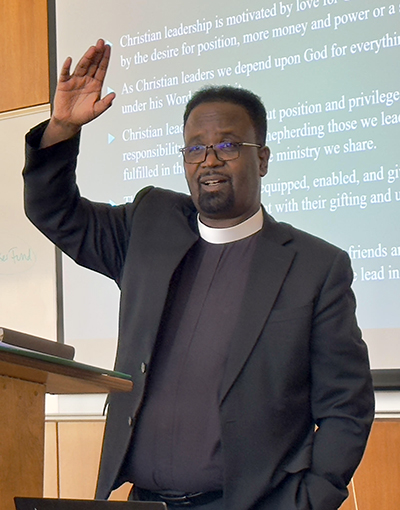
Comments on Rev. Amenu’s course were also encouraging: “Rev. Teshome is a brilliant teacher. The way he presented the content was professional. The case studies and the group discussions were very helpful.” “The class helped me to reflect on my own leadership style, where my strengths and weaknesses are, and gave me sufficient information to improve on my weaknesses.” “I have learned who is a leader and a servant at the same time. I have learned how to engage in the conflict resolution in the church. I have learned the very important point of integrity and accountability.” “Finding suitable materials has been my challenge as I have been teaching some courses on leadership. Now, I was given many good textbooks through Concordia Publishing House that I can use to improve leadership courses back home.”
“Our two courses were not only taught by two excellent instructors but also supported by a number of great Concordia Publishing House (CPH) resources,” noted LLDP Director, Rev. Dr. Naomichi Masaki. “The global impact of CPH can never be underestimated. The LLDP is enormously thankful for their partnership.”
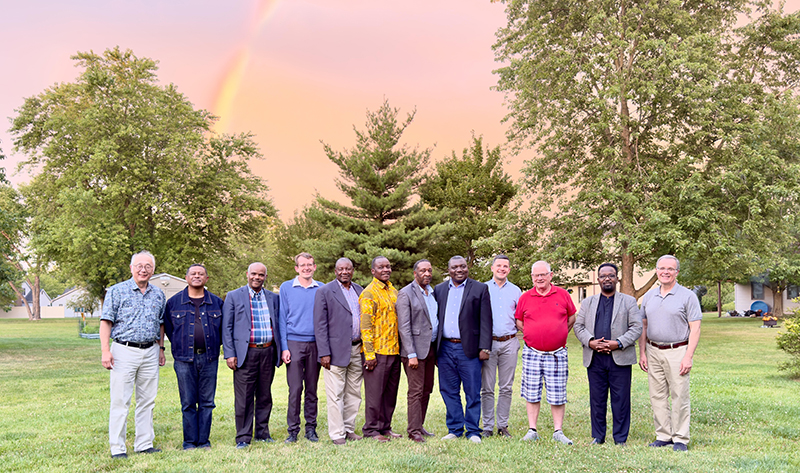
The next session in November will continue treating practical issues of church leadership, particularly in the areas of strategic planning and financial accountability. You are invited to support the work of the LLDP by making a donation online. You can also mail a donation by cheque to:
International Lutheran Council
P.O. Box 10149
Fort Wayne, Indiana 46850 USA
———————

